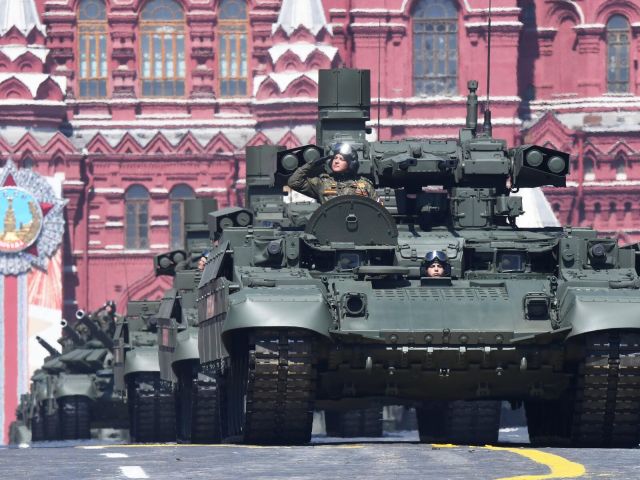The authors of the new study, in their words, "challenge established views": they showed that Armed Forces equipped with a large number of tanks and armored personnel carriers, on the contrary, do not pose a significant threat to the current government if the military wants to overthrow it.
Scientists from the University of Essex (UK), the Institute of Political Sciences at the University of Munich (Germany) and the Pompeu Fabra University in Barcelona (Spain) have found out how the violent seizure of power in the state correlates with the degree of mechanization of its army — the ratio of tanks, armored personnel carriers and the number of personnel. The study was published in the journal Comparative Political Studies and was one of the first in which the structure of the Armed Forces is theoretically and empirically related to how coups originate.
In the XXI century, it would seem that civil strife should sink into oblivion, and their number has really decreased markedly over the past few decades. Experts explain this by global and political transformations — the strengthening of international opponents of the seizure of power, the emergence of multiparty politics and regular elections in undemocratic countries.
However, such episodes are still found in many regions of the world. Over the past decade alone, the military has overthrown governments in Egypt (2013), Zimbabwe (2017), Sudan (2019 and 2021), Mali (2020 and 2021) and Myanmar (2021), and also made unsuccessful attempts in Burundi (2015), Burkina Faso (2015), Turkey (2016), Niger (2021) and Guinea-Bissau (2022).
Tanks and armored personnel carriers have become symbols of many such conflicts. So, in Zimbabwe in 2017, columns of armored vehicles entered the capital Harare and the military seized the state television company, the airport, blocked roads to the main government buildings. Similarly, in 2016, dozens of tanks and armored personnel carriers took up positions in Ankara and Istanbul in Turkey. Based on this, I would like to assume that more mechanized forces are pushing for attempts to seize power, since they increase the chances of the Armed Forces to establish dominance.
The authors of the new work focused on the extent to which the military relies on tanks and armored personnel carriers in comparison with manpower. Scientists also tried to answer the question whether the structure of the Armed Forces really makes them more dangerous for existing governments. After all, relying on the army as a means of protection from external and internal threats puts its representatives in a central position that they can use to seize power.
An international group of researchers cites arguments linking the mechanization of the army with the growth of its material and operational power and, consequently, the greater danger of coups. Nevertheless, as a result, it turns out that more mechanized Armed Forces are less likely to decide to attempt to seize power.
"This statement is based on two key mechanisms. First, providing the military with "toys" (tanks, vehicles and weapons) helps them to remain satisfied with the status quo and thereby correlates mechanization with a lack of incentive to organize coups. Since this argument can be challenged, we define a second mechanism focusing on execution costs and coordination failures. More specifically, mechanization increases the cost of a potential fratricidal conflict between units as a result of unsuccessful coordination, which can deter officers and soldiers from attempting to intervene and participate in it," the scientists explained.
With the help of an updated set of data on the structure of armies and coups that occurred in the world from 1979 to 2019, quantitative analysis and forecasting methods, the researchers confirmed the hypothesis that more mechanized forces means less risk of seizure of power. They focused on ground combat operations, since in the vast majority of cases it is through them that coups are organized.
The conclusion was as follows: despite popular opinion, the degree of mechanization is an important predictor of attempts to seize power. The higher it is, the lower the risk. As the results showed, the costs of a coup in a highly mechanized army are growing, and coordination between the instigators is becoming more complicated.
"By demonstrating that more powerful Armed Forces may not always pose a greater threat to the incumbent president, we challenge established views. Mechanization, in fact, reduces the risk of a coup, as well as the effectiveness of the military in the fight against the rebels. Consequently, investments in mechanization mean that governments shift the risk from coups to rebellions," the authors of the work concluded.


